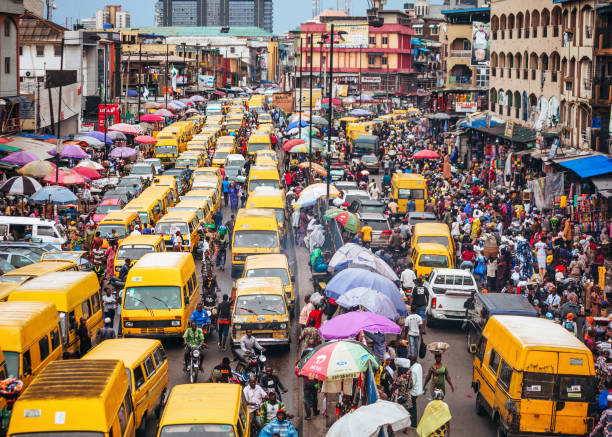In the first half of 2024, the states of Nigeria jointly spent around N139.92 billion on paying off their external debt.
This is based on an examination of the National Bureau of Statistics (NBS) Federal Account Allocation Committee (FAAC) statistics.
Compared to the N63.06 billion spent during the same period last year, the amount spent has increased by 122%.
What the data indicates
According to the data, states’ monthly debt service costs have more than doubled, from about N9 billion to over N20 billion. This increase is probably the result of the depreciation of the naira.
Nigerian states paid N9.88 billion in January 2024 for paying down their external debt, down from N13.67 billion in January 2023. Given this 27.7% decrease, some states may have lower debt service commitments this month. Additionally, during the period covered by this study, the currency rate primarily fluctuated between N830/$1 and N1,000/$1, which was the lowest range. Given that the amount removed in January 2024 is the same as it was for most of 2023, it would seem that the exchange rate element was not yet felt in that month.
Payments for debt servicing increased dramatically to N24.53 billion by February 2024, up 148.2% from N9.88 billion in the same month the previous year. This sudden increase draws attention to the potential impact of currency depreciation on repayment costs. An increase of this magnitude suggests that state budgets are under more financial strain.
With N40.41 billion spent on debt servicing in March 2024, the greatest amount ever paid on debt servicing was N9.88 billion in March 2023, a 309.1% increase. Higher maturing debt obligations after a quarter may be the cause of this sharp increase.
The overall monthly cost of servicing the external debt stabilized at N21.70 billion during April and June of 2024. In comparison to the N9.88 billion expended during the same months in 2023, this indicates a monthly rise of 119.70%. There was a decrease from the March peak in April 2024. The drop from March might be the result of finished debt cycles, but the persistently high numbers show persistent financial difficulties.
This large expense serves as a reminder of the increasing financial strain state governments are under as a result of their growing debt loads.
Kaduna and Lagos have the highest external debt-servicing expenses
The two states that spent the most were Kaduna, which spent N23.08 billion, and Lagos, which spent N32.44 billion during the course of the six months. Kaduna’s external debt servicing increased by over three times, from N9.89 billion, a 133% rise.
Costs associated with servicing debt increased significantly in Lagos State, another important economic centre. The cost of servicing the state’s external debt increased by 92%, from N16.88 billion in the first half of 2023 to N32.44 billion in 2024.
For the review period ending in 2024, these two states were responsible for 40% of the total foreign debt payment costs.
States in Bauchi and Cross River also saw significant rises in their debt payment commitments. The cost of servicing Cross River’s debt increased by 256%, from N2.21 billion in 2023 to N7.87 billion in 2024. In the same time frame, Bauchi State’s debt servicing costs increased by approximately 93%, from N3.28 billion to N6.33 billion.
The costs of Ogun State’s external debt servicing also increased significantly, going from N1.57 billion in 2023 to N4.29 billion in 2024 – a 173% rise. In a similar vein, Oyo State’s debt payment expenses increased dramatically, rising 144% from N2.61 billion in 2023 to N6.36 billion in 2024.
The costs of servicing Rivers State’s external debt also increased significantly, going from N1.76 billion in 2023 to N4.62 billion in 2024—a 162% rise.
The information shows that while Nigerian states continue to pay down their external debt, fiscal pressure is mounting on them.
What to note
At least three Nigerian states, including Ekiti, Cross River, and Ogun, have voiced worries about the increased costs associated with servicing their foreign debts as a result of extreme fluctuations in foreign money, according to an earlier article in The News Chronicles.
To improve their cash flow, one of the governments demanded that the repayment of multilateral loan debts be temporarily suspended.
The financial burden brought on by increasing currency rates has increased the costs associated with repaying foreign debt, according to the Commissioner of Finance for Ekiti State. He added that state balances have been severely lowered as a result of large deductions made for savings from the statutory revenue.
Similar concerns were voiced by Cross River State’s Commissioner of Finance over the state’s capacity to finance capital projects in light of declining revenue.
In particular, he proposed suspending the deductions for multilateral loan repayments when distributable revenue is low.
States have been attempting to reduce their debt stock as they battle rising debt payment costs. States’ total national debt decreased by 26% from N5.48 trillion in Q1 2023 to N4.07 trillion in Q1 2024, a 31% decrease from N5.86 trillion in Q4 2023.
The sharp rise in the cost of repaying foreign debt, however, raises questions about the financial stability of Nigerian governments because growing debt payments may take money away from vital programs like healthcare and education.



